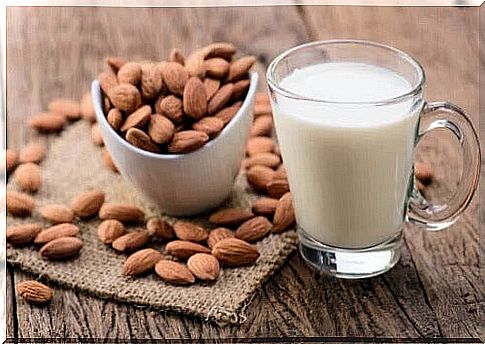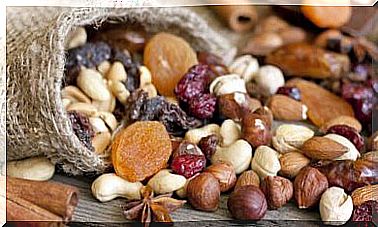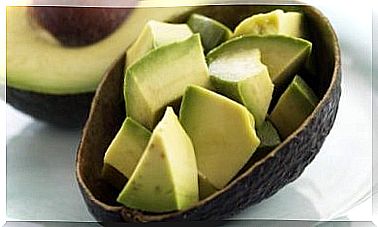Almond Milk Consumption In Children: Advantages And Disadvantages
For children who are allergic to cow’s milk proteins, almond milk can be an effective substitute. Here are the benefits.

Almond milk consumption in children is a new fad in the western diet as it can replace dairy products. It is used as a liquid product for people with lactose intolerance. However, it is not suitable for everyone.
Know that milk is a good food that shouldn’t necessarily be replaced. Unless there is a medical reason for it. Lactose intolerance must therefore be correctly diagnosed, otherwise you will forego an important food product that provides high-quality proteins and fats.
At what age is it advisable to consume almond milk and why?
We should take into account that breast milk has been shown to be the best food for children up to 6 months of age exclusively and complementary up to 2 years of age. It is important that the introduction of non-maternal products is gradual and that the advice of the pediatrician is followed.
From a technical point of view, nuts and dried fruits can be imported from the age of 6 months, whereby it is recommended that these are only eaten crushed to avoid swallowing. In this sense , you could introduce almond milk in the sixth month.
However, you should be very careful which almond milk product you use. Many contain added sugar, which greatly reduces the nutritional value. It is clear that regular intake of simple carbohydrates has a negative impact on a child’s health. This is also borne out by a study published in the Journal of Pediatric Gastroenteerology and Nutrition .

To find out more: Plant-based milk – 5 ways
Almond milk consumption in children: benefits
Below we explain the benefits of consuming almond milk in children.
Reduced risk of allergies
Introducing almonds into the diet early will reduce the risk of developing an allergy to nuts later. This, of course, speaks in favor of almonds. It must also be noted that these foods contain high quality fats and proteins. In addition, they are able to provide micro- and phytonutrients.
An option for children with cow’s milk protein allergies
For those children for whom it is impossible to consume cow’s milk due to allergic processes, almond milk is a great option. Of course, breastfeeding should always be a top priority.
However, if there is some kind of restriction on breastfeeding itself, it is also possible to prepare bottles of plant-based milk. This avoids processes that intensify inflammatory reactions.
Mineral supply
As we have already learned, nuts and dried fruits are characterized by the fact that they offer a complete supply of minerals, among which zinc stands out in particular. This micronutrient is essential for the proper functioning of the immune system , according to a study published in the journal Nutrients . This mineral affects the differentiation of the cells that make up the body’s lines of defense.

You might also be interested in: Easy to prepare almond milk for weight loss
Contraindications and disadvantages of consuming almond milk in children
We have already said that breast milk is the best food for babies. But cow’s milk also makes an interesting contribution to important nutrients. Almond milk, on the other hand, lacks high-quality proteins and fats and therefore does not have sufficient macronutrients.
In addition, some versions contain large amounts of added sugar, which has a detrimental effect on the baby’s metabolism. Therefore, it is crucial to pay attention to the labeling to avoid ultra-processed products as they can have a negative effect.
We should also keep in mind that almond milk consists to a large extent of water with a trace of nuts, so that we get a rather tasteless and not too useful product. Aside from the benefit of lowering the risk of developing allergies, there are many other higher quality foods available.
Almond milk consumption in children as an option for allergy sufferers
As we explained in this article, almond milk consumption in children makes sense to prevent the development of allergies. It can also be used to avoid the consumption of cow’s milk by people who cannot tolerate it or who develop autoimmune diseases to the proteins.
Almond milk can be introduced from 6 months of age, although breastfeeding should always be the preferred option. This provides the baby with all the nutrients it needs to develop healthily.









